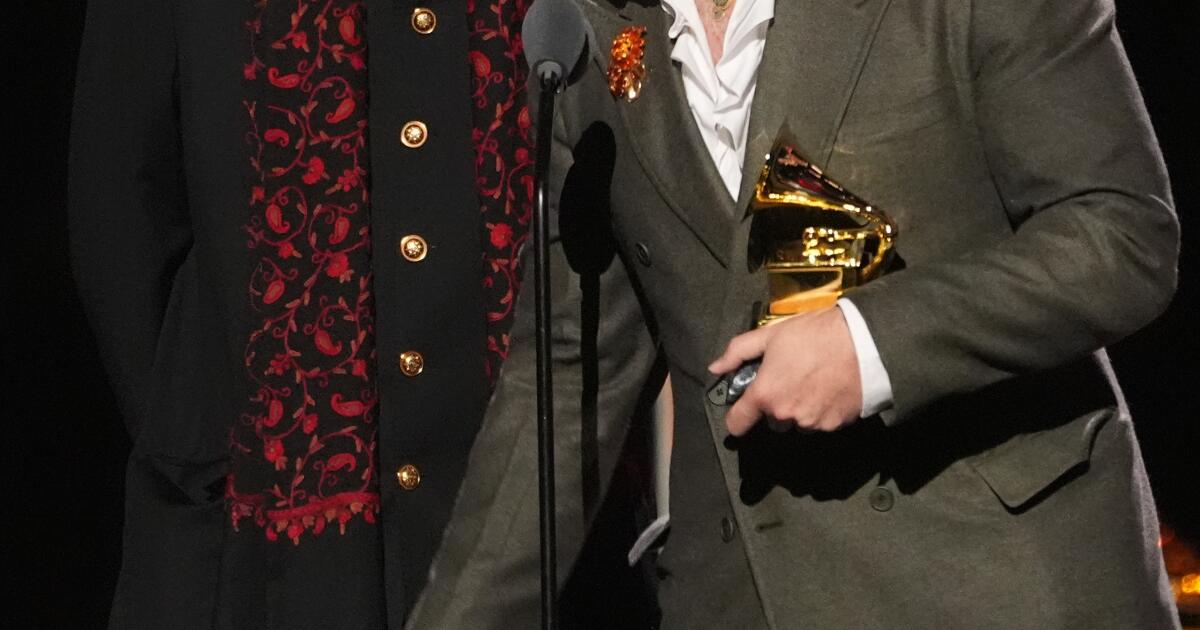China criticizes decision to award a Grammy to the Dalai Lama
BEIJING — Beijing on Monday criticized the Dalai Lama ’s first Grammy win, describing the music industry award for an audiobook, narration and storytelling as “a tool for anti-China political manipulation.”
The Tibetan Buddhist spiritual leader, who lives in exile in India, took the award on Sunday for his book, “Meditations: The Reflections of His Holiness the Dalai Lama.”
He said in a statement on his website that he saw the award “as a recognition of our shared universal responsibility.”
“I receive this recognition with gratitude and humility,” he added.
China’s Foreign Ministry spokesperson Lin Jian said: “It is well known that the 14th Dalai Lama is not merely a religious figure but a political exile engaged in anti-China separatist activities under the guise of religion.”
“We firmly oppose the relevant party using the award as a tool for anti-China political manipulation,” he added.
The Dalai Lama, who is seen by many as the face of Tibet’s struggle for autonomy, has lived in exile since 1959, when Chinese troops crushed an uprising in the Tibetan capital of Lhasa.
China, which governs Tibet as an autonomous region, has been accused of trying to stamp out the Tibetan language, culture and identity.
Beijing and the Dalai Lama also spar over the spiritual leader’s eventual successor. Tibetan Buddhists believe the Dalai Lamas are reincarnations of a spiritual leader first born in 1391.
Beijing maintains the next Dalai Lama will be born in Tibet and recognized by the ruling Communist Party, whereas the Dalai Lama has said his successor will be from a free country and that China has no role in the process.
